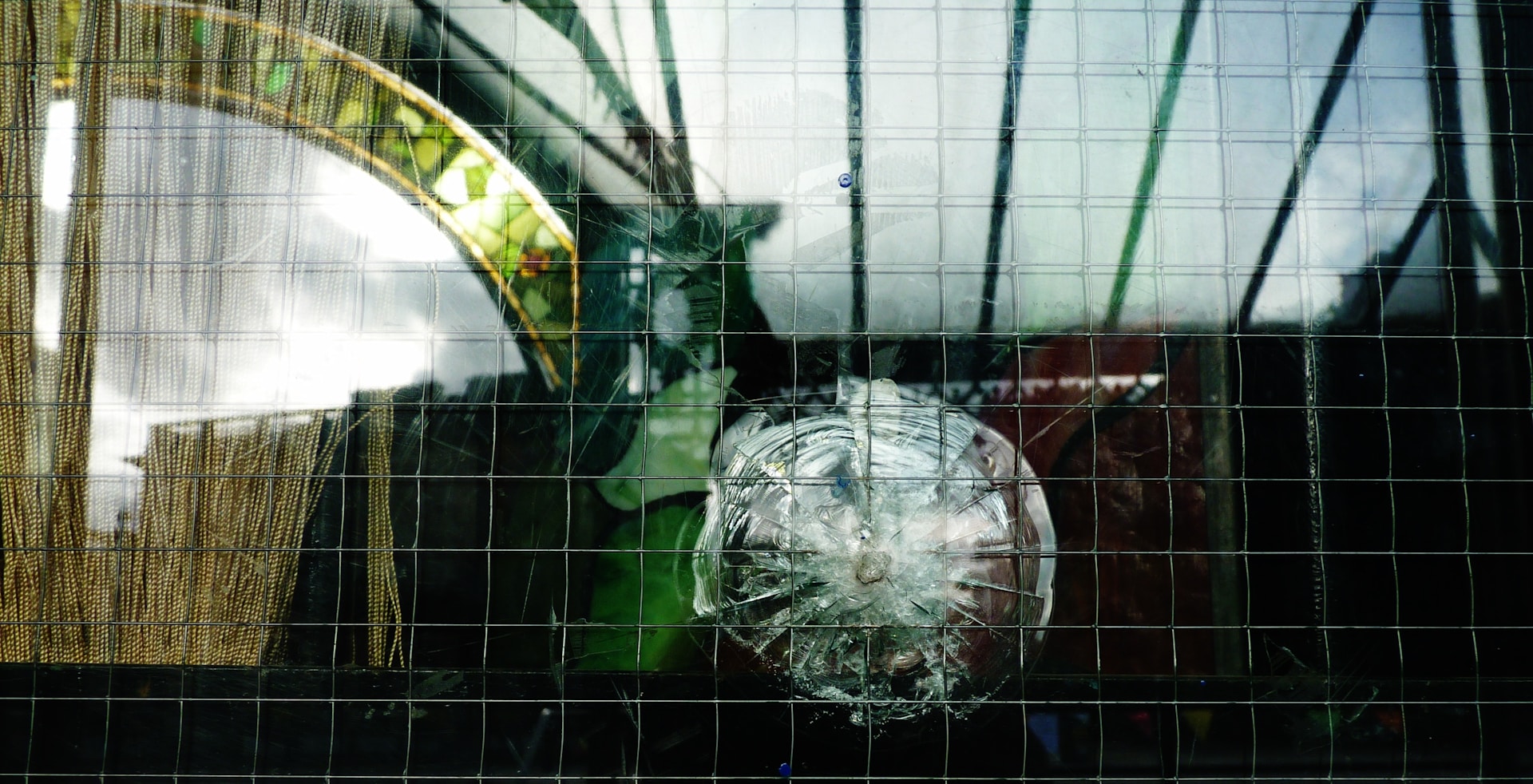Security concerns have reached unprecedented levels across residential and commercial properties. Property owners are increasingly seeking robust defensive measures that provide both protection and peace of mind.
Among the most effective security solutions available today, bulletproof windows stand out as a critical component in comprehensive safety systems.
Bulletproof windows, also known as ballistic-resistant glazing, offer a sophisticated barrier against threats while maintaining the aesthetic appeal and functionality of standard windows.
These specialized protective glass installations have evolved significantly, incorporating advanced materials and engineering techniques that deliver exceptional performance without compromising on design or usability.
This comprehensive guide explores how bulletproof windows enhance security for both residential and commercial applications, examining their construction, benefits, installation considerations, and the role they play in modern security strategies.
Understanding Bulletproof Window Technology
Core Construction Principles
Bulletproof windows utilize multiple layers of specialized materials to create an impenetrable barrier. The foundation typically consists of laminated glass combined with polycarbonate or acrylic layers.
These materials are bonded using advanced adhesives that distribute impact forces across the entire surface area. The thickness of bulletproof windows varies based on the level of protection required.
Standard residential applications might use 1.25-inch thick panels, while high-security commercial installations can incorporate glazing up to 3 inches thick. Each layer serves a specific purpose in the overall protective system.
Material Science Behind Protection
Modern protective glass incorporates cutting-edge materials that exceed traditional safety glass capabilities.
The inner layers often feature polycarbonate sheets that provide flexibility and impact absorption. The outer layers utilize tempered or laminated glass that maintains optical clarity while providing initial resistance to projectiles.
Advanced manufacturing processes ensure seamless integration between layers, eliminating weak points that could compromise the window’s integrity.
The result is a transparent barrier that maintains visual clarity while providing exceptional protection against various threat levels.
Security Benefits for Residential Properties
Home Protection Advantages
Residential bulletproof windows offer homeowners multiple security benefits beyond basic protection.
These installations create a psychological deterrent effect, as potential intruders recognize the visible commitment to security measures.
The windows protect against forced entry attempts, vandalism, and severe weather events. The acoustic properties of bulletproof windows also reduce external noise levels, creating a more comfortable living environment.
This dual functionality makes them particularly attractive for homes located in urban areas or near busy roadways.
Family Safety Considerations
For families concerned about personal safety, bulletproof windows provide an additional layer of protection that allows occupants to remain safely inside while emergency responders arrive.
The windows maintain structural integrity even when subjected to significant impact forces, preventing breach attempts that could endanger family members.
The installation of residential bulletproof windows can also positively impact property insurance rates, as insurers recognize the reduced risk associated with these security enhancements.
Many homeowners find that the long-term insurance savings help offset the initial investment costs.
Commercial Security Applications
Business Protection Strategies
Commercial properties face unique security challenges that require comprehensive solutions.
Bulletproof windows serve as a crucial component in multi-layered security systems, protecting valuable assets, sensitive information, and personnel.
These installations are particularly valuable for financial institutions, retail establishments, and government facilities.
The presence of bulletproof windows allows businesses to maintain normal operations while providing enhanced security.
Employees can work confidently knowing that their workplace incorporates advanced protective measures. This improved sense of security can positively impact productivity and staff retention.
Industry-Specific Requirements
Different industries have varying security requirements that influence bulletproof window specifications. Financial institutions typically require higher protection levels than retail establishments.
Government facilities may need specialized glazing that meets specific ballistic resistance standards.
Healthcare facilities, schools, and corporate offices increasingly incorporate bulletproof windows as part of comprehensive security upgrades.
These installations must balance protection requirements with accessibility needs and emergency egress considerations.
Installation and Integration Considerations
Professional Installation Requirements
Bulletproof window installation requires specialized expertise and equipment. Professional installers must ensure proper fitting within existing frames while maintaining the structural integrity of the building.
The installation process involves precise measurements, custom fabrication, and careful handling of heavy glazing materials.
Proper installation includes sealing systems that prevent water infiltration while maintaining the window’s ballistic properties.
The mounting systems must distribute the weight of the bulletproof glazing across the building’s structural elements without creating stress concentrations.
Building Code Compliance
Installation of bulletproof windows must comply with local building codes and safety regulations. These requirements vary by jurisdiction and may include specific standards for emergency egress, fire safety, and accessibility.
Professional installers understand these requirements and ensure compliance throughout the installation process.
Building permits may be required for bulletproof window installations, particularly in commercial applications. The permitting process helps ensure that installations meet all applicable safety and structural requirements.
Cost-Effectiveness and Value Proposition
Investment Analysis
The initial cost of bulletproof windows represents a significant investment that must be evaluated against potential security benefits.
Factors influencing cost include the level of protection required, window size, installation complexity, and quantity of units needed.
Long-term value considerations include reduced insurance premiums, increased property value, and the intangible benefits of enhanced security.
Many property owners find that the peace of mind provided by bulletproof windows justifies the initial investment costs.
Maintenance and Longevity
Bulletproof windows require minimal maintenance while providing decades of reliable protection.
The materials used in their construction resist yellowing, cracking, and other forms of degradation that could compromise their effectiveness. Regular cleaning with appropriate products maintains optical clarity and appearance.
The durability of bulletproof windows makes them cost-effective long-term security solutions.
Unlike electronic security systems that require ongoing maintenance and upgrades, bulletproof windows provide passive protection that doesn’t depend on power sources or technological components.
Selecting the Right Protection Level
Threat Assessment Considerations
Choosing appropriate bulletproof windows begins with a thorough threat assessment that considers the specific risks faced by the property.
Residential applications typically require lower protection levels than commercial installations, but individual circumstances may warrant higher-grade protective glass.
Professional security consultants can help property owners evaluate their specific needs and recommend appropriate protection levels.
This assessment considers factors such as location, property value, occupancy patterns, and potential threat sources.
Ballistic Barrier Products Standards
Ballistic Barrier Products and similar manufacturers produce bulletproof windows that meet established industry standards for ballistic resistance.
These standards define specific protection levels based on the types of threats the glazing can withstand. Understanding these standards helps property owners make informed decisions about their security investments.
The most commonly referenced standards include UL 752 ratings, which classify bulletproof glazing based on its ability to stop specific ammunition types.
These ratings range from Level 1 (small caliber handgun rounds) to Level 8 (high-powered rifle rounds).
Future Considerations and Emerging Technologies
Technological Advancements
The bulletproof window industry continues to evolve with new materials and manufacturing techniques that improve performance while reducing costs.
Smart glass technologies are being integrated with bulletproof glazing to provide additional functionality such as privacy control and solar heat management.
Emerging materials promise to deliver enhanced protection at reduced weight and thickness.
These developments will make bulletproof windows more accessible for a broader range of applications while maintaining or improving their protective capabilities.
Market Trends and Adoption
Growing security awareness is driving increased adoption of bulletproof windows across both residential and commercial markets.
This trend is supported by improved manufacturing techniques that have reduced costs while maintaining quality standards.
The integration of bulletproof windows into comprehensive security systems represents a significant market opportunity.
Property owners increasingly recognize the value of combining physical barriers with electronic security measures to create layered protection strategies.
Enhancing Security Through Smart Protection Choices
Bulletproof windows represent a proven security solution that provides reliable protection for both residential and commercial properties.
Their ability to combine robust protection with aesthetic appeal makes them an attractive option for property owners seeking comprehensive security enhancements.
The decision to install bulletproof windows should be based on careful consideration of specific security needs, budget constraints, and long-term objectives.
Professional consultation with security experts and qualified installers ensures that property owners make informed decisions that provide optimal protection for their unique circumstances.
As security threats continue to evolve, bulletproof windows remain a fundamental component of effective protection strategies.
Their passive protection capabilities, combined with minimal maintenance requirements and long service life, make them a valuable investment in property security and peace of mind.



Leave a Comment